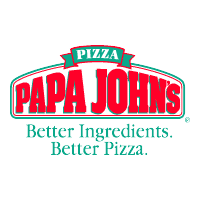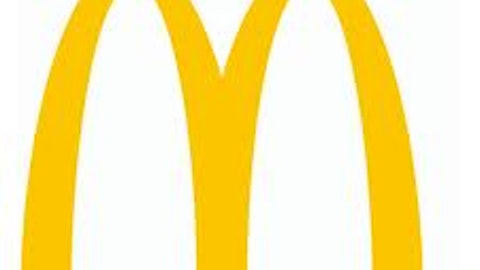
Valuation
As shown by the chart below, both pizza companies are trading at their highest respective valuations ever. In the past, neither company traded above a 20 forward PE, so I am skeptical that investors will continue buying these stocks at such high valuations. That being said, one cannot rule out an investment simply because it is fully valued. Warren Buffett has said,
it is far better to buy a wonderful company at a fair price than a fair company at a wonderful price
PZZA Forward PE Ratio data by YCharts
Competition
Both Papa John’s Int’l, Inc. (NASDAQ:PZZA) and Domino’s Pizza, Inc. (NYSE:DPZ) have proved to be high-quality operators. However, as shown by the profit margin chart below, Papa John’s Int’l, Inc. (NASDAQ:PZZA) and Domino’s Pizza, Inc. (NYSE:DPZ) do business in a fiercely competitive market, where new competition is a constant. In my opinion, neither company has much of a competitive moat. I am not saying that their pizzas are bad or their delivery time is slow. Rather, there are many smaller companies that do the same thing. One reason for all the competition is that the barrier to entry is quite low in the industry.
PZZA Profit Margin Quarterly data by YCharts
Alternatives
If you want to make a long-term investment in a restaurant stock, my two favorites are Darden Restaurants, Inc. (NYSE:DRI) and McDonald’s Corporation (NYSE:MCD).
Unlike, Papa John’s Int’l, Inc. (NASDAQ:PZZA) and Domino’s Pizza, Inc. (NYSE:DPZ), Darden and McDonald’s are trading at forward P/E ratios in the mid-teens, not the mid-20s. Furthermore, both Darden Restaurants, Inc. (NYSE:DRI) and McDonalds pay healthy dividends: 3.08% for McDonald’s Corporation (NYSE:MCD) and 4.3% for Darden. Comparably, Domino’s pays a dividend of 1.3%, and Papa John’s Int’l, Inc. (NASDAQ:PZZA) does not pay a dividend.
In my opinion, both McDonald’s and Darden have significantly wider competitive moats than Papa John’s Int’l, Inc. (NASDAQ:PZZA) or Domino’s Pizza, Inc. (NYSE:DPZ). For McDonald’s Corporation (NYSE:MCD), its competitive advantage is price. Simply put, no one has been able to do it cheaper than McDonald’s. McDonald’s $100 billion valuation proves what a foothold the company has in its industry.
Darden Restaurants, Inc. (NYSE:DRI)’s competitive advantage lies in operational ability. Simply put, it is far more difficult to open and run an upscale casual dining restaurant than it is to open and run a pizza shop.
A major difference between pizza companies and restaurant companies is exposure to rising gas prices. For pizza companies, rising gas costs have a major impact on the bottom line as delivery costs surge higher. However, rising gas prices also have adverse effects on traditional restaurant companies such as Darden. Higher gas prices mean consumers have less money to spend at higher-end restaurants run by Darden. Contrastingly, for McDonald’s, higher gas prices can be a positive, as consumers trade down from more expensive restaurants to cheaper fast-food options such as McDonald’s.
Conclusion
At current valuations, Papa John’s Int’l, Inc. (NASDAQ:PZZA) and Domino’s Pizza, Inc. (NYSE:DPZ) are priced for perfection. Over the long term, given the lack of a protective moat and competitive market place, I am skeptical that Papa Johns and Domino’s will be as successful as market participants expect. Contrastingly, McDonald’s and Darden are cheaper based on valuation, pay nice dividends, and also offer what is, in my opinion, a stronger protective moat.
The article Why You Shouldn’t Order Pizza for Your Portfolio originally appeared on Fool.com and is written by Sammy Pollack.
Sammy Pollack has no position in any stocks mentioned. The Motley Fool owns shares of Papa John’s International (NASDAQ:PZZA). Sammy is a member of The Motley Fool Blog Network — entries represent the personal opinion of the blogger and are not formally edited.
Copyright © 1995 – 2013 The Motley Fool, LLC. All rights reserved. The Motley Fool has a disclosure policy.





